The night sky has always fascinated human beings, and throughout history, people have looked up at the stars and seen constellations that tell stories of ancient myths and legends. One such constellation is Orion, also known as the Mighty Hunter. The myth of Orion has captivated cultures around the world, from Greek mythology to Native American folklore. In this article, we will explore the origins of the myth, delve into the story of Orion and his encounters with other celestial beings, uncover the symbolism and significance of this legendary figure, and examine the lasting impact of Orion on literature, art, and popular culture. Join us on a journey through the stars to discover the myth of Orion and the rich tapestry of stories woven into the night sky.
Contents
- The Origins of the Myth
- The Story of Orion
- Symbolism and Significance of Orion
- The Legacy of Orion
- Conclusion
-
Frequently Asked Questions
- 1. What are the origins of the myth of Orion?
- 2. How is Orion represented in other cultures?
- 3. What is the significance of the constellation of Orion?
- 4. What is the story of Orion’s birth and early life?
- 5. What were Orion’s hunting skills known for?
- 6. What happened during Orion’s encounter with the Scorpion?
- 7. What symbolism is associated with Orion?
- 8. What was Orion’s relationship with Artemis?
- 9. How did Orion become a constellation after his death?
- 10. How has the myth of Orion influenced literature, art, and popular culture?
- References
-
Frequently Asked Questions
- 1. What is the myth of Orion all about?
- 2. Which culture originally developed the myth of Orion?
- 3. How is Orion portrayed in other cultures?
- 4. What is the significance of the constellation of Orion?
- 5. How was Orion born and what was his early life like?
- 6. What were the hunting skills that made Orion famous?
- 7. What happened during Orion’s encounter with the Scorpion?
- 8. What does Orion symbolize as a hunter and protector?
- 9. What was the relationship between Orion and the goddess Artemis?
- 10. How does Orion live on in literature, art, and popular culture?
- References
- Read More
The Origins of the Myth
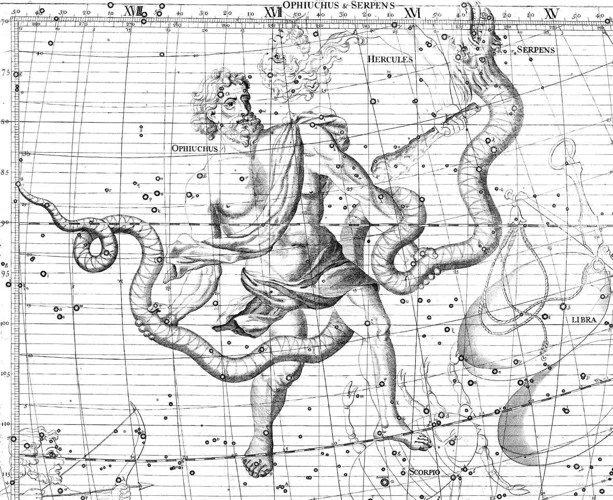
The Origins of the Myth of Orion can be traced back to the ancient world, particularly in Greek mythology. According to the Greek legends, Orion was a mighty hunter who possessed incredible strength and agility. But the myth of Orion extends beyond Greece and can be found in various cultures, each with their own interpretation and stories associated with the constellation. From Native American folklore to African and Australian Aboriginal legends, Orion has been revered as a prominent figure in the night sky. The constellation itself holds immense significance across cultures, and its celestial prominence has sparked astronomical curiosity for centuries. To gain a deeper understanding of the constellation Orion and its rich mythology, it is crucial to explore the stories and beliefs of different cultures from around the world.
1. Orion in Greek Mythology
In Greek mythology, Orion was a renowned hunter and one of the most well-known characters associated with the constellation. The Greek mythological stories depict Orion as a son of the sea god Poseidon and the nymph Euryale. His exceptional hunting skills were admired by all, but his arrogance and boastfulness eventually led to his downfall. According to one version of the myth, Orion claimed that he could kill any creature on Earth. This angered the goddess Gaia, who sent a giant scorpion to challenge him. Despite his strength and prowess, Orion was unable to overcome the scorpion’s venomous sting and was ultimately killed.
Another version of the myth suggests that Orion had an unfortunate encounter with the goddess Artemis, who was known for her hunting skills. Orion, captivated by Artemis’ beauty, pursued her relentlessly. However, Artemis, wanting to preserve her independence, summoned a deadly scorpion to kill Orion. Devastated by the loss of her hunting companion and possibly regretting her own actions, Artemis honored Orion by placing him in the night sky as a constellation.
The Greek mythology surrounding Orion is filled with tales of his adventures and encounters with other mythical creatures. One popular story involves Orion joining the Argonauts on their quest for the Golden Fleece. He played a significant role in battles against monsters and proved himself as a loyal and valorous companion.
The myth of Orion in Greek mythology has not only contributed to our understanding of the constellation itself but has also provided valuable insights into the cultural beliefs and values of ancient Greece. Orion’s story serves as a cautionary tale against arrogance and hubris, reminding us of the consequences that can come from unchecked pride. To delve even further into the fascinating world of constellations and their myths, you can explore other articles in our collection, such as “Exploring Aboriginal Astronomy and the Southern Cross”.
2. Orion in other Cultures
In addition to its prominent place in Greek mythology, Orion holds significance in various other cultures across the globe. Let’s explore how different civilizations have interpreted and incorporated the myth of Orion into their own legends and beliefs:
1. Egyptian Mythology: In ancient Egypt, Orion was associated with the god Osiris, who was believed to guide the souls of the deceased to the afterlife. The three stars forming Orion’s belt were seen as the celestial representation of Osiris’ belt.
2. Aboriginal Astronomy: The Aboriginal peoples of Australia have rich astronomical traditions, and they have their own stories and interpretations of the Orion constellation. One of their stories refers to Orion as the creator spirit “Djulpan,” who is responsible for the formation of the land and the creation of humanity.
3. Mesopotamian Culture: In Mesopotamian mythology, the constellation of Orion was associated with the hero Gilgamesh, a legendary figure known for his strength and bravery. Orion’s position in the sky was believed to represent the presence of divinity and protection.
4. African Folklore: Across different African cultures, Orion is often seen as a warrior or hunter figure. Many tribes believe that Orion was an important deity associated with fertility, protection, and the cycle of life.
5. Native American Legends: Native American tribes also have their own interpretations of the Orion constellation. For example, the Lakota Sioux people saw Orion as a warrior chasing a group of seven sisters, known as the Pleiades.
These are just a few examples of how Orion has been revered and integrated into the mythologies and traditions of different cultures. The versatility of Orion’s mythological significance across civilizations is a testament to its enduring impact and universal appeal.
To explore more about the fascinating world of astronomy, you can learn about the constellation Ophiuchus and its connections to deep sky objects by following this link. Additionally, if you’re interested in understanding the difference between solar and lunar eclipses, you can find more information by clicking on this link.
3. The Constellation of Orion
The Constellation of Orion is one of the most recognizable and striking constellations in the night sky. Located on the celestial equator, it is visible from both the northern and southern hemispheres, making it a beloved sight for stargazers across the globe. Orion is primarily composed of seven main stars that form the distinctive shape of a hunter holding a club and shield. The brightest stars within the constellation are Betelgeuse and Rigel, which represent Orion’s right shoulder and left foot, respectively. In addition to these prominent stars, Orion also features the famous Orion Nebula, a cloud of dust and gas where new stars are born. This nebula, also known as Messier 42, is a popular target for astronomers and can be observed with telescopes or even binoculars on a clear night. The beauty and grandeur of the constellation of Orion have inspired countless ancient and modern civilizations, solidifying its place as a celestial icon in human culture. So, the next time you gaze up at the night sky, make sure to look for this remarkable constellation and appreciate the mythical and astronomical significance it holds.
The Story of Orion
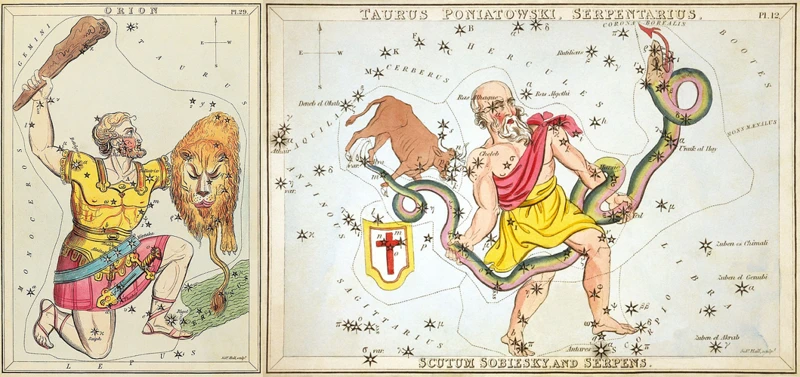
The story of Orion is steeped in adventure and tragedy. In Greek mythology, Orion was said to be the son of the god Poseidon and the nymph Euryale. His birth and early life were filled with extraordinary feats, as he displayed immense strength and an exceptional talent for hunting. It was said that Orion possessed an ability to walk on water, which allowed him to traverse vast oceans in search of prey. He would often accompany the goddess Artemis on her hunting expeditions, becoming her loyal companion. However, Orion’s fate took a darker turn when he encountered a formidable adversary – the giant scorpion. The encounter between Orion and the scorpion was fateful, resulting in a deadly battle that ultimately led to their demise. Orion was stung by the scorpion’s venomous tail, and both he and the scorpion were immortalized in the night sky as constellations. It is a tale of tragedy, immortalized throughout the ages in the stars above.
1. Birth and Early Life
Orion’s birth and early life are steeped in mythology and legends. According to Greek mythology, Orion was the son of the god Poseidon and the earth goddess Gaia. He was born on the island of Delos, a sacred place in Greek lore. From the moment of his birth, it was clear that Orion possessed extraordinary strength and bravery. Some versions of the myth suggest that Orion was born with the ability to walk on water, showcasing his divine heritage. As he grew older, his physical prowess only increased, making him an exceptional hunter. Orion’s early life is often depicted as a period of exploration and adventure, as he roamed the wilderness in search of formidable creatures to challenge and conquer. He honed his skills as a hunter, becoming legendary for his ability to track and catch even the most elusive and dangerous prey. Although the specific details of Orion’s early life vary in different cultures and versions of the myth, the general consensus is that his upbringing was marked by divine favor and a destined path to greatness.
2. The Hunting Skills of Orion
Orion, known as the Mighty Hunter, was not only celebrated for his strength but also for his exceptional hunting skills. With his bow and arrow in hand, Orion roamed the Earth, tracking down and capturing wild animals with unwavering precision. Legends speak of his ability to take down ferocious beasts that posed a threat to humans and livestock. His keen eyesight allowed him to spot his prey from great distances, and his extraordinary speed and agility enabled him to swiftly pursue and capture his targets. No creature could escape Orion’s grasp, and his hunting prowess became the stuff of legends. His reputation as a skilled hunter spread far and wide, earning him admiration from mortals and immortals alike. Whether he was chasing down fierce boars or tracking elusive deer, Orion’s hunting skills were unmatched, cementing his status as the ultimate hunter in ancient mythology.
3. Orion’s Encounter with the Scorpion
Orion’s Encounter with the Scorpion is a crucial and dramatic event in the mythological narrative. According to the Greek mythology surrounding Orion, his arrogance and boastfulness angered the gods, leading them to challenge his abilities as a hunter. The goddess Gaia, the Earth deity, sent a scorpion to confront Orion. This monstrous scorpion, known as Scorpius or Scorpio, was sent to test Orion’s strength and skill.
The encounter between Orion and the scorpion was a fierce and epic battle, with each displaying their formidable powers. As the scorpion attacked with its venomous stinger, Orion fought back with his mighty club and sharp spear. The sky trembled with their clash, and the magnitude of their struggle caught the attention of the gods and mortals alike.
Despite Orion’s immense strength, he was ultimately stung by the scorpion’s venomous tail, resulting in a fatal wound. As Orion succumbed to the poison, he fell to the ground, leaving a lasting impact on the world around him. In some versions of the myth, it is said that the gods were so impressed by his valiant effort that they placed him among the stars as a constellation, forever immortalizing him in the night sky.
This mythic encounter between Orion and the Scorpion symbolizes the eternal struggle between man and nature, arrogance and humility. It serves as a cautionary tale, reminding us of the consequences of excessive pride and the traps that hubris can lead us into. Orion’s Encounter with the Scorpion showcases the power and complexity of Greek mythology and the enduring allure of the night sky’s celestial stories.
Symbolism and Significance of Orion
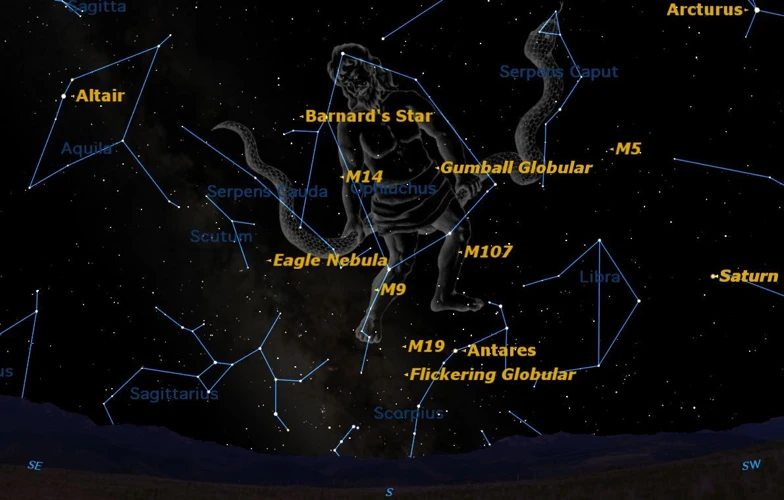
Symbolism and Significance of Orion go beyond being a mere constellation in the night sky. The myth of Orion portrays him as a powerful and skilled hunter, symbolizing strength, bravery, and determination. In various cultures, Orion is seen as a protector figure, safeguarding against evil forces and threats. In Greek mythology, Orion had a close relationship with the goddess Artemis, further emphasizing his connection to hunting and wilderness. This relationship also highlights the balance between masculine and feminine energies. After his death, Orion was immortalized as a constellation, serving as a reminder of his remarkable achievements and journey. The placement of Orion in the night sky also plays a profound role in navigation and timekeeping for ancient civilizations, guiding travelers and marking the changing seasons. The symbolism and significance of Orion continue to inspire and resonate with people of all backgrounds and cultures to this day.
1. Hunter and Protector
In various mythologies, Orion is often depicted as both a skilled hunter and a powerful protector. His prowess as a hunter is legendary, with stories of his ability to track and capture the most elusive creatures. He was said to have been able to single-handedly slay fierce beasts and mythical creatures, demonstrating his exceptional strength and agility.
But Orion’s role extended beyond hunting; he was also revered as a protector. In Greek mythology, he was seen as a guardian and a defender of the innocent. According to some legends, Orion was appointed by the gods to safeguard the Earth from evil forces and protect humanity from harm.
His status as a protector can be seen in various stories where he comes to the aid of others. One such tale involves Orion saving the island of Chios from a rampant wild boar that was terrorizing the inhabitants. Another story speaks of him intervening to rescue the daughters of the King of Chios from an attack by pirates.
Orion’s role as a hunter and protector is symbolic of the inherent duality of human nature. He embodies the primal instincts of survival and the desire to safeguard those in need. The myth serves as a reminder that even those who possess great strength and skill should use their powers responsibly and for the greater good.
Throughout history, the depiction of Orion as a hunter and protector has inspired admiration and reverence. These qualities have found their way into various cultural expressions, including literature, art, and even modern-day interpretations. Orion’s mighty presence in the night sky continues to captivate and remind us of the noble virtues associated with the hunter and protector archetypes.
2. Relationship with Artemis
In the myth of Orion, his relationship with Artemis, the Greek goddess of the hunt and the moon, is a central aspect of his story. Orion was not only a skilled hunter but also a loyal companion and friend of Artemis. According to some versions of the myth, Orion even became a hunting partner and protector of Artemis.
The bond between Orion and Artemis was strong, and their connection was often depicted as one of deep friendship and mutual respect. While Artemis was known to be an independent and fierce goddess, Orion held a special place in her heart. Some myths suggest that Artemis was so fond of Orion that she even considered marrying him, but her brother Apollo disapproved of the thought.
Unfortunately, the relationship between Orion and Artemis faced a tragic end. In one version of the myth, Orion boasted about his hunting skills, claiming that he could kill any animal on Earth. This boast angered the gods, who sent a scorpion to challenge Orion. Orion fought valiantly but was ultimately stung by the scorpion’s deadly venom. Artemis arrived too late to save him, grieving the loss of her dear friend.
Artemis honored Orion’s memory by placing him among the stars, transforming him into the constellation that bears his name. It is said that Artemis was so distraught by his death that she prohibited the scorpion from rising above the horizon while Orion was in the sky, resulting in the opposing seasonal appearances of the two constellations.
The relationship between Orion and Artemis highlights themes of friendship, loyalty, and the power of loss. Their story serves as a reminder of the unpredictable nature of fate and the lasting impact of deep connections between mortal and divine beings.
3. Orion’s Afterlife in the Stars
Orion’s afterlife in the stars is a fascinating aspect of the myth surrounding this legendary hunter. According to Greek mythology, after his death, Orion was placed among the stars by Zeus as a constellation, immortalizing his presence in the night sky. This celestial placement is believed to be a reward for his exceptional hunting skills and bravery during his earthly life. In the night sky, Orion is depicted as a hunter, wielding a sword and shield, accompanied by his faithful hunting dogs, Canis Major and Canis Minor.
The prominence of Orion in the celestial realm is not limited to Greek mythology. Various cultures have their own interpretations of Orion’s afterlife in the stars. In some Native American folklore, Orion is often associated with guiding spirits of their ancestors. The stars that make up the constellation are seen as the campfires of these ancestral spirits, illuminating the way for the living.
In Chinese astronomy, Orion is known as Shen, the three stars forming his belt representing the “Three Stars” mansion. The Chinese believe that these stars bring fortune, wealth, and prestige. They also associate this celestial figure with traits like bravery, honor, and success.
The afterlife of Orion in the stars is not just a cultural belief but also a scientific fascination. The constellation of Orion plays a crucial role in astronomy and stargazing. It serves as a celestial roadmap for astronomers to locate and study other deep space objects. Its prominent stars such as Betelgeuse and Rigel have been subjects of scientific observation and exploration.
Orion’s story continues to captivate and inspire people as they marvel at the beauty of the night sky. Whether seen as a beloved hunter, a guiding spirit, or a significant marker for scientific observations, Orion’s afterlife in the stars holds a powerful significance across cultures and scientific communities alike.
The Legacy of Orion
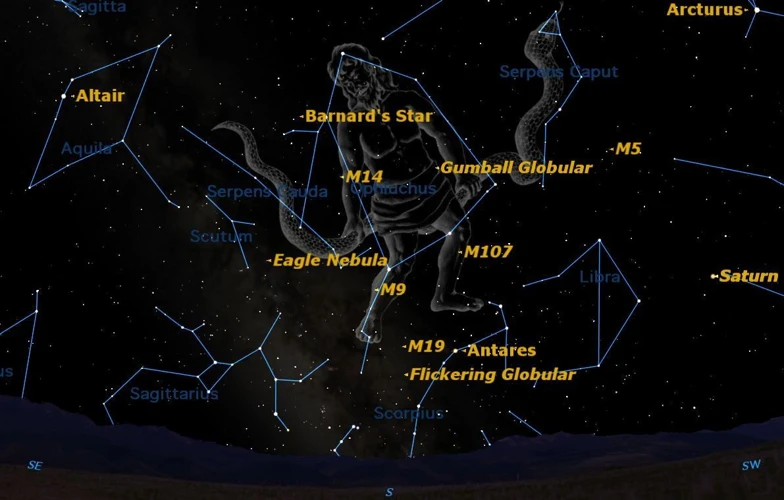
The Legacy of Orion extends far beyond ancient myths and legends. This celestial figure has left an indelible mark on various aspects of human culture and society. In literature and art, Orion often symbolizes bravery, strength, and the pursuit of greatness. Writers and artists throughout history have been inspired by the myth of Orion, incorporating his story into their works. Scientifically, the constellation of Orion has been a subject of great interest to astronomers. Its prominent stars and nebulae have been observed and studied, contributing to our understanding of the universe. Orion’s influence can be seen in popular culture, with references to this legendary hunter appearing in films, books, and even video games. The enduring legacy of Orion serves as a testament to the power of storytelling and the enduring fascination with the mysteries of the night sky.
1. Influence in Literature and Art
The influence of Orion in literature and art is undeniable, as this mythical figure has left a lasting impact on creative endeavors throughout history. In literature, we can find countless references to Orion, particularly in epic poetry and classical works. One notable example is Dante Alighieri’s “Divine Comedy,” where Orion is depicted as a guide through the heavens. Orion’s strength and bravery have also been a source of inspiration for many authors, with references and allusions to this mighty hunter appearing in works ranging from Shakespeare’s plays to modern science fiction novels.
In the realm of art, Orion has been depicted in various forms, from sculptures and paintings to stained glass windows and tapestries. Renaissance artists, such as Titian and Rubens, portrayed Orion in their works, capturing his powerful presence and his connection to the celestial realm. The constellation itself, with its distinctive three stars forming Orion’s belt, has been a popular motif in visual art, symbolizing both the beauty of the night sky and the mythical tales associated with this constellation.
Orion’s influence extends beyond traditional literature and art forms and has made its way into popular culture as well. In film and television, characters inspired by Orion often embody traits of strength, heroism, and determination. Additionally, the name Orion has been used for spaceships and futuristic technology, further cementing its place in popular culture.
The influence of Orion in literature and art spans centuries and continents, captivating the imaginations of writers, painters, and creators across the globe. Through various artistic mediums, Orion continues to inspire and enchant, reminding us of the enduring allure of mythology and the cosmos.
2. Scientific Discoveries and Observations
The myth of Orion not only influenced ancient beliefs and cultural narratives but also had a profound impact on scientific discoveries and observations. Here are some notable examples of the scientific relevance of Orion:
1. Stellar Evolution: The stars within the constellation of Orion provide astronomers with valuable insights into the process of stellar evolution. The Orion Nebula, also known as Messier 42, is a stellar nursery where new stars are formed. Scientists study this region to understand how stars are born, evolve, and eventually die.
2. Trapezium Cluster: Located in the heart of the Orion Nebula, the Trapezium Cluster is a group of young, massive stars. This cluster has been extensively studied due to its proximity and the availability of high-resolution observations. Astronomers have used this cluster to study the properties of young stars, their formation, and the dynamics of stellar systems.
3. Visible and Infrared Observations: The constellation of Orion is easily visible in the night sky, making it an ideal target for both amateur and professional astronomers. Its prominent stars, such as Betelgeuse and Rigel, have been extensively observed in various wavelengths of light, including visible and infrared. These observations have contributed to our knowledge of stellar atmospheres, stellar classification, and the composition of interstellar medium.
4. Dark Clouds and Star Formation: Dark clouds, such as the Horsehead Nebula and the Orion Molecular Cloud Complex, are located within the boundaries of Orion. These clouds are opaque regions of dust and gas that block the visible light of background stars. By studying these dark clouds, astronomers can understand the mechanisms that trigger star formation and the role of interstellar material in the birth of new stars.
5. Cosmic Distance Measurements: The large and bright stars in Orion have served as important standard candles for determining cosmic distances. By calibrating the luminosity of these stars and comparing them to their apparent brightness, astronomers have been able to estimate distances to other galaxies more accurately, contributing to our understanding of the vastness and age of the universe.
The scientific discoveries and observations associated with the Orion constellation have helped shape our understanding of stellar evolution, star formation, and the overall structure of our universe. This ongoing research continues to unravel the mysteries of the cosmos, all inspired by the legendary myth of Orion, the Mighty Hunter.
3. Pop Culture References
3. Pop Culture References:
Pop culture has embraced the myth of Orion, incorporating references to the mighty hunter in various forms of entertainment. From movies to music, here are some notable pop culture references to Orion:
1. Films: The myth of Orion has inspired filmmakers to incorporate his character into their stories. In the 1981 film “Clash of the Titans,” Orion appears as a powerful ally of Perseus, aiding him in his quest to defeat mythical creatures. Additionally, references to Orion can be found in other science fiction films like “Men in Black” and “Dune,” where his name is given to spaceships or characters.
2. Music: Orion’s legend has also made its way into the world of music. The rock band Metallica released an instrumental track titled “Orion” on their 1986 album “Master of Puppets.” The song showcases the band’s musical prowess and has become a fan favorite.
3. Literature: Orion’s myth has served as inspiration for numerous authors and storytellers. In the popular book series “Percy Jackson & The Olympians” by Rick Riordan, Orion appears as a recurring character, portrayed as a colossal warrior with an insatiable thirst for power.
4. Video Games: The myth of Orion has even found its way into the realm of video games. In the popular game “Assassin’s Creed: Odyssey,” players can encounter a questline involving Orion and his legendary hunting skills.
5. Branding and Advertising: Orion’s name and imagery are often used in branding and advertising. For example, the Orion spacecraft, developed by NASA, is named after the mythological hunter, symbolizing humanity’s pursuit of exploration and discovery beyond Earth.
These are just a few examples of how the myth of Orion has permeated pop culture. His stories and symbolism continue to captivate the imaginations of artists, musicians, writers, and game developers, ensuring that the legacy of the mighty hunter lives on in our modern world.
Conclusion
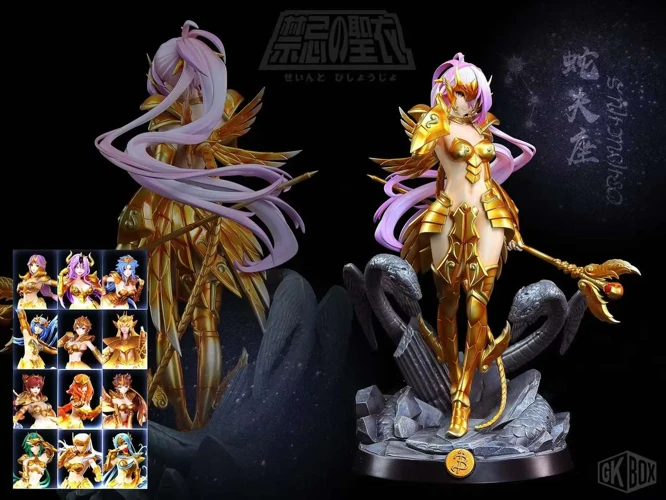
In conclusion, the myth of Orion has left an indelible mark on our collective consciousness. Across different cultures and time periods, the stories of this mighty hunter have fascinated and inspired us. Orion’s role as a hunter and protector has symbolized bravery, skill, and resilience, making him a figure of admiration and reverence. His relationship with Artemis, the goddess of the hunt, adds depth and complexity to his character, highlighting themes of love, loyalty, and devotion. Orion’s afterlife as a constellation in the night sky reinforces his enduring legacy, as people continue to gaze at the stars and find solace, wonder, and inspiration. The myth of Orion has also had a significant impact on art and literature, serving as a muse for countless artists, writers, and poets over the centuries. Scientifically, the constellation of Orion has provided astronomers with a wealth of knowledge and served as a focal point for observations and discoveries. From the study of deep sky objects to the exploration of neighboring constellations like Ophiuchus or the cultural significance of constellations like the Southern Cross in Aboriginal astronomy, Orion has been a constant source of fascination and exploration. In popular culture, Orion’s presence can be felt in films, books, and even video games, further cementing his status as a legendary figure. Overall, the myth of Orion and its enduring legacy exemplify the power of storytelling to connect us with the celestial wonders of the universe and ignite our imagination.
Frequently Asked Questions

1. What are the origins of the myth of Orion?
The origins of the myth of Orion can be traced back to Greek mythology, where he was depicted as a mighty hunter known for his strength and skills in the art of tracking and hunting wild animals.
2. How is Orion represented in other cultures?
Orion has a significant presence in various cultures around the world. In Native American folklore, he is often associated with stories of a great hunter. African and Australian Aboriginal cultures also have their own interpretations of Orion, often portraying him as a legendary figure.
3. What is the significance of the constellation of Orion?
The constellation of Orion holds great astronomical significance. Its distinctive pattern of stars has made it one of the most recognizable constellations in the night sky. Astronomers and stargazers often use Orion as a reference point for navigating the heavens, and it has played a role in celestial navigation throughout history.
4. What is the story of Orion’s birth and early life?
According to mythology, Orion was the son of the sea god Poseidon and the mortal huntress Euryale. He was born on the island of Delos and grew up to become a skilled and renowned hunter, admired for his physical prowess and hunting abilities.
5. What were Orion’s hunting skills known for?
Orion was known for his incredible hunting skills, particularly his unmatched strength, agility, and accuracy with the bow and arrow. His reputation as a capable hunter spread far and wide, earning him great respect among both mortals and gods.
6. What happened during Orion’s encounter with the Scorpion?
One of the most famous episodes in the myth of Orion is his encounter with a scorpion. According to the story, Orion boasted about his hunting abilities to the goddess Artemis, who sent a giant scorpion to test his skills. Ultimately, Orion was stung by the scorpion and met his untimely end.
7. What symbolism is associated with Orion?
Orion is often seen as a symbol of strength, bravery, and resilience. As a fearsome hunter, he represents the human desire to conquer and overcome challenges. Additionally, Orion’s placement in the night sky has been seen as a sign of protection and guidance for travelers throughout history.
8. What was Orion’s relationship with Artemis?
Orion had a close relationship with the goddess Artemis, who was not only his hunting companion but also someone he deeply admired. Some versions of the myth suggest that Orion and Artemis were in love, while others present them as eternal friends and companions in their shared love for the hunt.
9. How did Orion become a constellation after his death?
After his death, Orion was immortalized as a constellation in the night sky. The gods placed his likeness among the stars as a tribute to his hunting prowess and to ensure that his legacy would be remembered for eternity.
10. How has the myth of Orion influenced literature, art, and popular culture?
The myth of Orion has had a significant impact on various forms of human expression. Many famous works of literature and art have referenced or incorporated Orion in their themes. Orion’s prominence has made it a subject of fascination in popular culture, with references to the constellation appearing in movies, TV shows, and even video games.
References
- Orion the Hunter, the world’s most recognizable constellation
- The REAL Story In The Stars Part 29: Orion, The Mighty …
Frequently Asked Questions

1. What is the myth of Orion all about?
The myth of Orion revolves around the story of a mighty hunter in the night sky who met a tragic end. It explores his birth, hunting skills, encounters with other mythical creatures, and his eventual transformation into a constellation.
2. Which culture originally developed the myth of Orion?
The myth of Orion originated in Greek mythology, where he was depicted as a great hunter and a son of the gods.
3. How is Orion portrayed in other cultures?
Orion appears in various forms in different cultures. For example, in Egyptian mythology, he is associated with the god Osiris. In Hindu mythology, he is linked to the deity Rudra, the god of hunting and storms.
4. What is the significance of the constellation of Orion?
The constellation of Orion holds great significance across different cultures. It has been used as a navigational tool, a symbol of power and strength, and a representation of the cycle of life and death.
5. How was Orion born and what was his early life like?
According to mythology, Orion was born to the sea god Poseidon and the mortal huntress Euryale. He showed exceptional strength and skill from a young age and was raised by the centaur Chiron.
6. What were the hunting skills that made Orion famous?
Orion was renowned for his exceptional hunting skills. He was said to be able to kill any animal with a single arrow, regardless of its size or strength, making him a formidable hunter.
7. What happened during Orion’s encounter with the Scorpion?
During a hunting expedition, Orion boasted of his hunting abilities and claimed that he could kill any creature on Earth. In response, the goddess Artemis sent a giant scorpion to challenge him. Orion was stung by the scorpion and eventually succumbed to the venom.
8. What does Orion symbolize as a hunter and protector?
Orion symbolizes the archetype of the hunter and protector. He represents strength, courage, and the pursuit of mastery. His presence also serves as a deterrent to evil forces, acting as a guardian figure.
9. What was the relationship between Orion and the goddess Artemis?
Orion had a close relationship with the goddess Artemis, who was both a sister figure and a hunting companion to him. Their bond was strong, and their stories often intertwine in mythology.
10. How does Orion live on in literature, art, and popular culture?
Orion’s myth has left a lasting impact on literature, art, and popular culture. He is a recurring character in many stories, poems, and paintings, symbolizing strength and heroism. Additionally, his constellation continues to inspire astronomers and stargazers around the world.
References
- Orion Constellation (the Hunter): Stars, Facts, Myth, Location
- Mighty Orion: The Mythology
- The REAL Story In The Stars Part 29: Orion, The Mighty …







